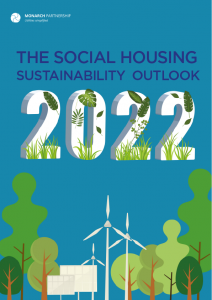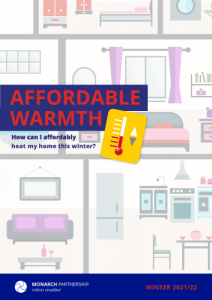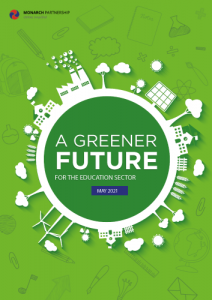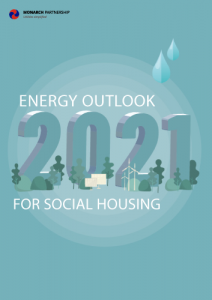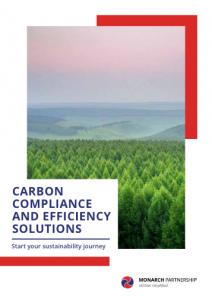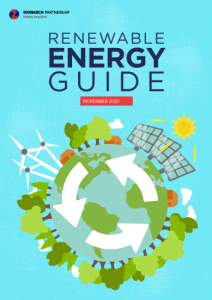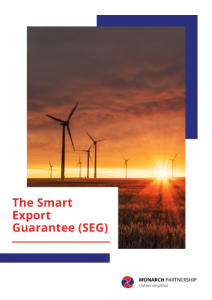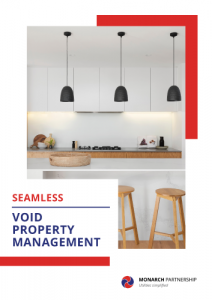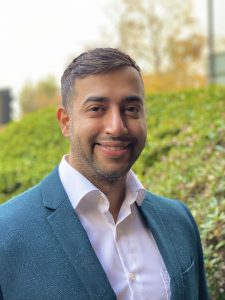
Arjan Dosanjh has been involved with Monarch Partnership from a young age. Now Managing Director, he oversees business strategy and manages the teams.
We talk to him about weathering the recent energy crisis storm, and why the future is all about sustainability…he might also surprise you with his culinary skills!
What is your day like in the office? Which team members and departments do you work closely with?
On a day-to-day basis I work with the pricing and tendering teams, who do a lot of trading on the clients’ behalf to ensure that we get the best pricing for them.
I also work closely with all the client facing account management teams. They are a team of 10, with two senior managers leading the customer-facing side. On the carbon and sustainability side, I work with the director of our carbon solutions team, which is helping to drive clients towards a low carbon future.
I also interact with our sales and marketing teams to ensure that our brand messaging, client communications and services are adding real value.
Who is a typical Monarch client?
We are fortunate, in terms of the products and services that we offer, that we can work with a range of businesses within the UK. Whether they are large corporations, or SMEs, to give them expert advice on their energy requirements and become a knowledge base for them.
That said, Monarch tends to be predominant in the large multi-site social housing and local authority sectors, which came about in the mid-2000s. A term coined in the industry is ‘bill validation’, but we were the vanguard – we started that. We started to build our own in-house software back in the early 2000s. What that led to was the ability to handle multiple sites for clients and all the billing that comes with it.
We work with many housing associations: Bromford Housing, Stonewater, Poplar Harca and VIVID Housing all come to mind straight away. We also have many clients in the education sector, for example, Birmingham City University. Plus other clients like Bunzl, who are a large logistics company that we do a lot of work for across their group.
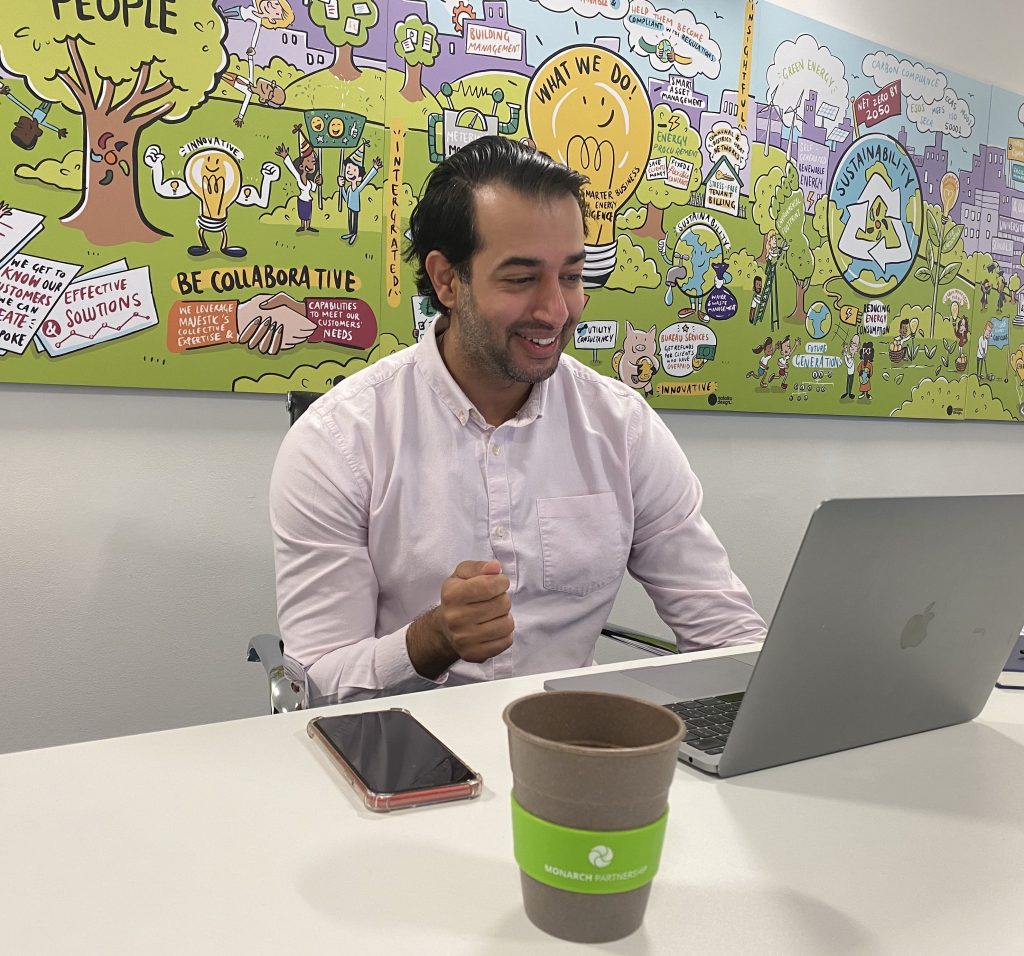
“Monarch is predominant in the large multi-site social housing and local authority sectors. That came about through the mid-2000s. A term coined in the industry is ‘bill validation’, but we were the vanguard – we started that.”
We like to become ingrained within the organisation and really find out how they operate. We also like to develop a long-term relationship with our clients and our retention rate is around 90%, year on year. So we know that what we do is good, and it’s about trying to improve that going forward.
Let’s talk about the recent energy price rises. How is this impacting your clients? And what effect do you think this will have on the industry in general?
The energy crisis has sent shockwaves throughout the industry. This year, we’ve seen a 300% increase in gas prices and 270% increase in electricity prices. It is likely that we will lose a lot of suppliers who have recently been aggressively trying to disrupt the market. Of course competition is always good for us, and good for our customers. But essentially, it means we are leaning on the bigger governmental infrastructure and larger corporations to settle things down.
This is the result of many geopolitical factors – weather patterns, a lot of brinksmanship and a pandemic have come together in a perfect storm. We intend to weather the storm for our customers. Meaning that we will vet and validate suppliers to ensure there is no risk of a shortage in supply. And we will mitigate any big price increases that our customers may face. We’re doing a lot of work behind the scenes, to ensure that our customers are locked into long-term energy contracts. And they’ve been really happy in terms of the work we did then, to stop them facing the problems that we have now.
But it’s a massive wake-up call. I’ve never seen it in my lifetime.
What would your message be to clients?
I would really emphasise to clients that they should come and talk to us. We have sent out a lot of communications about the reasons for the market movements. And we’ve carried out a lot of work, to ensure that we have security of supply for our clients.
The majority of our customers are on contracts that we are confident will be honoured. For those coming up for renewal within the next few months, we will be talking to you on a regular basis to find the best strategy for you and to minimise your costs. But now is the time to act and have open lines of communication, so that we don’t face further problems down the line.
And if there was ever a time to look at energy efficiency, it’s now…
Yes, definitely. For those that are confident of their budgets going forward, put infrastructure and plans in place, and invest now. Clients can work alongside us to look at ways to become less reliant on the energy markets and commodity markets. Whether that’s through onsite generation, lowering your carbon, or lowering your energy usage.
If we had made the switch to a green economy sooner, do you think that the energy crisis wouldn’t have happened?
I think if customers had tried to reduce their energy usage, whether that’s through monitoring, or targeting any kind of energy services or infrastructure, they’d be the biggest winners. Because they’d have looked ahead and not let the market dictate what happens to them. This only amplifies what we are saying and doing around looking at your sustainability and carbon. If you look at the climate, the pandemic and the geopolitical state of the world, these shocks are much more likely in the future. So you need to protect yourself against the markets over the coming years. Self-sufficiency within your organisation is key.
“If you look at the climate, the pandemic and the geopolitical state of the world, these shocks are much more likely in the future.”
Can you explain your intelligent procurement strategy for clients?
The first point would be to monitor the markets and see where we can approach the market, depending on their portfolio, to ensure that they’re at an advantageous point. If there’s a dip in the market, for example, we would try to get the best energy rates for the customer. What we have to take into consideration is the customer’s requirements. So we like to build our risk policy around that. Are they risk averse? Do they want fixed contracts? Is their budget constrained?
What is the geographic spread of their portfolio? Where is it clustered, and what are they using on particular sites? When we have this information, we can start to build a risk and trading policy for them. For a customer with few touch points regarding energy within the organisation, additional work needs to be carried out before we have the required data. For example, a customer might not have a lot of smart meters and it can be hard to build a data analysis for them without this.
At the moment we are focusing on flexible contracts, positioning the client for a longer-term outlook – with a view to trading when the market improves.
“What we have to take into consideration is the customer’s requirements and needs. So we like to put the risk policy around that. Are they very risk averse? Do they want fixed contracts? Is their budget constrained?”
What are your views on sustainability? How should clients approach sustainability within their corporate social responsibility strategy?
I think that they should be looking at it holistically. It isn’t just one element, such as just purchasing green energy. It goes deeper than that, within an organisation.
Businesses need to seriously consider trading green energy. They also need to look at their carbon footprint and reduce carbon wherever possible – whether that‘s through site surveys to monitor and change their lighting, or wall insulation, for example. They should also consider onsite generation to mitigate some of the power that they are buying in, and start to supply themselves. And they need to look at where their source of power is coming from.
Businesses should also think about transport – such as installing electric vehicle fleets. They should look at their supply chain and the logistics around that, and the carbon footprint around their suppliers – because ultimately these emissions ends up as part of their scope 3 emissions for reporting purposes.
The sustainability journey is the future of our company. We’re looking at new lines of products and services, as well as strategic acquisitions, to ensure that our customers benefit from the holistic green journey. Whether that’s green procurement in the most financially sound and smartest way, or cleansing existing portfolios.
“The sustainability journey is the future of our company. We’re looking at new product services, and acquisitions, to ensure our customers benefit from the holistic journey.”
Who has been your inspiration or mentor?
It would have to be my dad. He started the business and I’ve worked with him for pretty much all of my career. He’s given me the opportunity earlier than most people have, to be in my role and deal with the things I do, day-to-day. He’s a great sounding board, he gives good advice and ultimately a lot of trust.
What is your favourite food?
That can change from time to time. It has to be my mum’s curry though. I don’t eat anything better than that!
What are your hobbies and interests?
Football. Cooking. Working out. Going out!
I’m a big football fan. I support Arsenal (not everything’s going great!). I do like sports a lot, and working out myself in the gym. Like most people, I love going out and when I need some quiet time, reading.
I do have a passion for cooking and baking. I recently challenged myself to make cinnamon swirls which are quite tricky but turned out surprisingly well. I guess along with the nation, during lockdown everyone was baking bread, banana cake and cookies!
Travelling is a big hobby of mine. I went to Peru and climbed Machu Pichu about six years ago, that was an amazing experience! I’ve visited the United States a few times – all the major cities – and I hope to go again. I’ve been to India four or five times. North Africa, Dubai, and quite a lot of Europe. So, yes, I do like to travel! But my favourite place is probably Tokyo, Japan!
What are you watching on tv, film, reading at the moment?
I’ve just started reading a book called ‘Atomic Habits’ by James Clear. He suggests breaking down habits in our life, to become more efficient and happier. So, if you hate going to the gym but at the end of it there’s a reward every time, then it breaks the habit. Let me finish it and then I’ll tell you!
I’m also watching ‘Succession’, I’m a big fan. And I’ve got a sweet spot for the TV show ‘Rick and Morty’. Film-wise, I watched ‘Candyman’ recently. I really want to watch ‘James Bond’. And I want to watch ‘Dune’ at the IMAX, because I’ve heard that it’s really panoramic.








